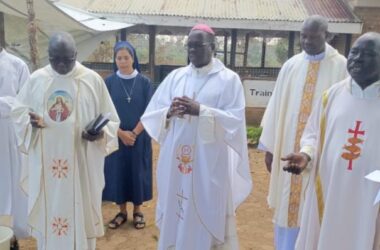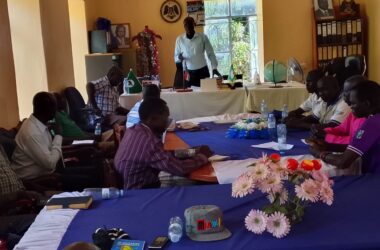By James Innocent
Some of the stakeholders in Yei River County of Central Equatoria State have received disaster management skills.
The members that received the skills were drawn from various community groups and institutions.
According to the officials, the two-day training workshop on disaster management, organized by the African Democracy and Resilience Network, is meant to equip the participants with knowledge.
Speaking during the closing session, Frank Lomoro, a representative of the African Democracy and Resilience Network, reiterated that the train will help in responding to disasters.
He added that the training aimed at equipping community leaders with practical skills in disaster risk reduction, climate change adaptation, and monitoring.
“The purpose of this training is to help local leaders understand climate-related disasters, identify human activities driving climate change, and build strategies for adaptation. We have seen how floods, heat waves, and other climate-related challenges continue to affect Yei communities,” Lomoro explained.
He urged stakeholders to take proactive measures in addressing climate-related disasters, emphasizing the need for community-level awareness and preparedness.
Isaac Matayo, Inspector of Local Government in Yei River County, commended the organizers and donors for their support, stressing that such initiatives contribute to strengthening resilience in South Sudan.
“We appreciate this training because it builds the capacity of our leaders. I encourage partners to share the outcomes of this workshop with the national Ministry of Disaster Management, as they remain the key authority on disaster-related issues,” Matayo noted.
He further called on local leaders to translate the knowledge gained into community awareness programs, particularly on disaster preparedness and response.
One of the participants, Emmanuela Raja, described the training as timely and valuable, noting that it provided insights into how communities can mitigate disasters caused by both natural and human activities.
“This training is important because it helps us address practices like tree cutting for income, which worsens climate change and makes our environment hotter during the dry season. I call on fellow participants to spread this awareness to the wider community,” Raja said.
Yei has previously experienced severe flooding that claimed two lives and destroyed homes, livestock, and crops along riverbanks.
Stakeholders at the training emphasized that building resilience and disaster preparedness is critical in preventing similar tragedies in the future.




